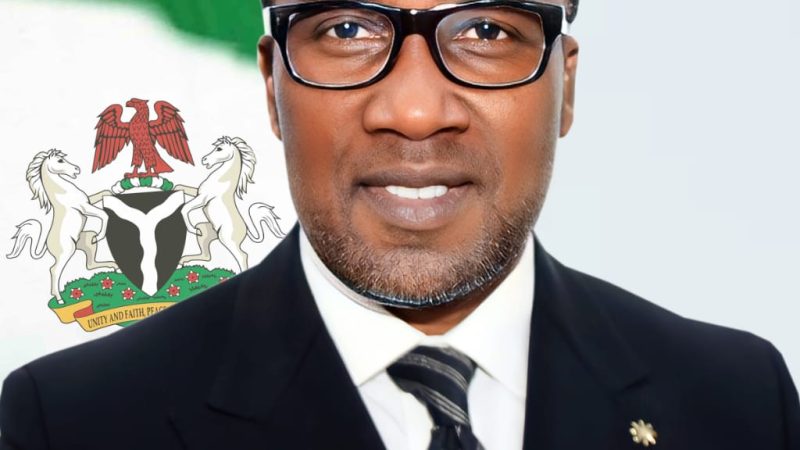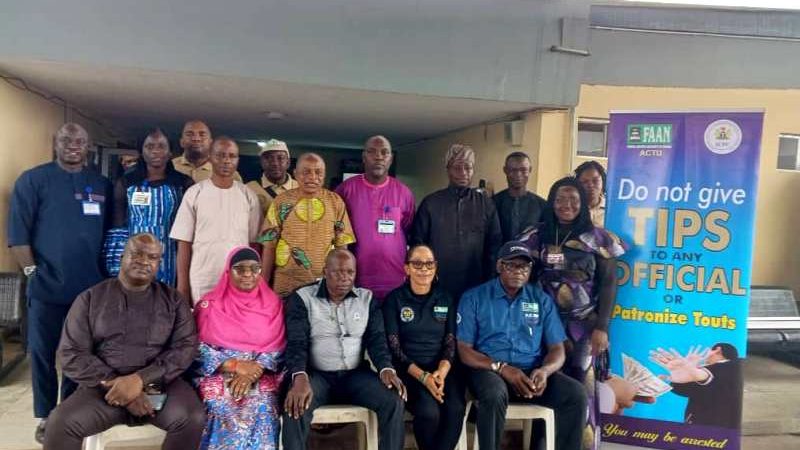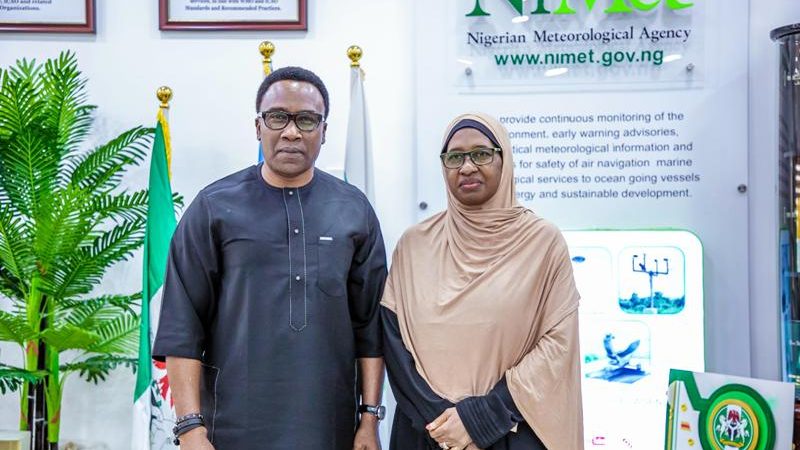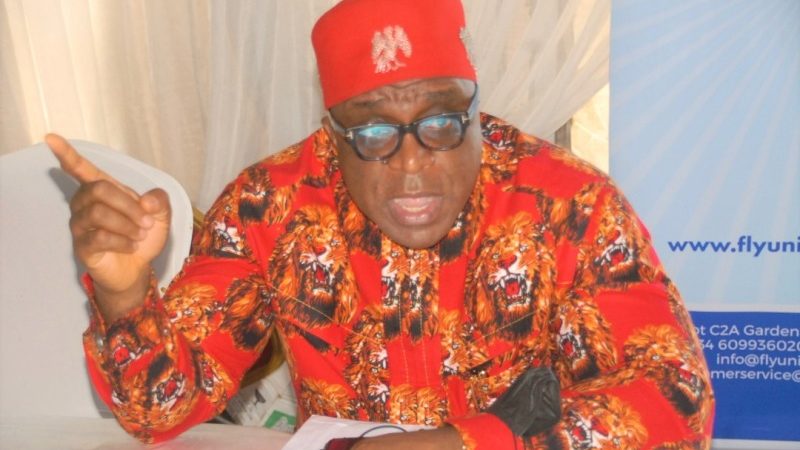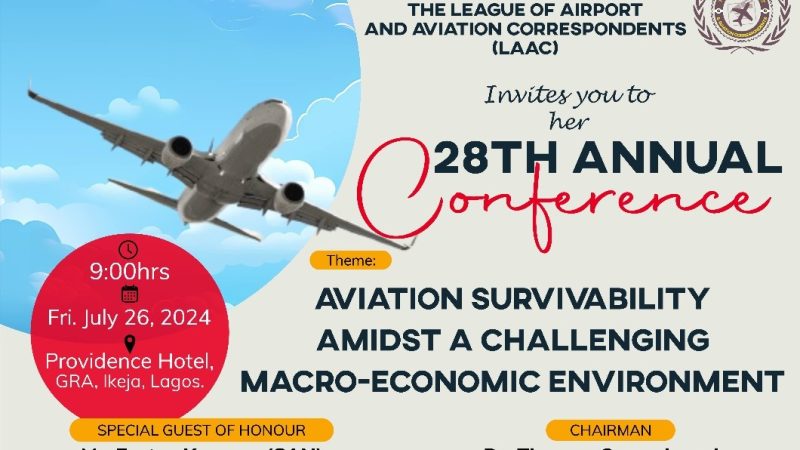Why Nigeria Air May Not Exist Beyond 2023
The title of this article could have been “Why Nigeria Air May Never Fly” but for reasons of modesty and to avoid being accused of being absolutely pessimistic, I have decided to adopt the above caption.
Having covered Nigeria’s aviation industry for 22 years, with consistent display of patriotism and love for country in my reports, there is a benefit of huge hindsight and any suspected attempt to toil with the intelligence of industry stakeholders can hardly go down well with me.
Airline business is very sensitive but prospective. More importantly, the foundation of investment in airline business is a very significant determinant of the success of the business. The business is process based, international in nature and necessarily bound by regulatory shields. Because of this, an airline’s sustainability can most times, be predicted at the point of formation where Nigeria Air is located presently.
I will like the federal government of Nigeria to openly disprove the title of this article by this time in 2023.
The announcement by the current government, of plans to establish a national carrier has been fraught with so many controversies. That is not even my challenge. The point is that allegations of insincerity are appearing right.
The Minister of Aviation, Hadi Sirika says the proposed Nigeria Air will have 49% ownership by a foreign investor and 46% of local investors, while Federal government retains 5%. He said Ethiopian Airlines has been picked as the “foreign partner” while local investors would be SAHCO, MRS and Nigeria Sovereign Investment Authority (NSIA).
The NSIA eventually denied having anything to do with the proposed “national carrier”, thereby fuelling already existing suspicions against sincerity of intentions. In the face of the embarrassment, Aviation Ministry made a u-turn and replaced NSIA with “institutional investors”. So, the proposed national carrier will be owned by Ethiopian Airlines, MRS, SAHCO and institutional investors.
More questions than answers on the proposed National carrier have emerged. What was the criterion for choice of equity investors? Why give Ethiopian Airlines, owned by government of another African country, controlling stake of 49%?
If the Federal Executive Council (FEC) approved huge amount for lease of three aircraft for the take-off of Nigeria Air, what exactly is Ethiopian Airlines bringing to the table that gave rise to allocating 49% equity stake to it? If the federal government, the real owner will only have 5% stake in the proposed Nigeria Air, it is not a NATIONAL CARRIER.
Should government be looking to set up an airline in a Nigerian aviation market where indigenous airlines with huge prospects are operating under not so conducive environments that government needs to fix to encourage more? That’s another aspect of the matter that boosts scepticm about government’s intentions.
Ethiopian Airlines has already listed Nigeria Air as its subsidiary. Why use public funds and government backing to establish subsidiary of Ethiopian Airlines in your own country to compete with your local airlines or rather, send them out of existence?
Are the dangers of such arrangement to national security and Nigeria’s aviation economy not “visible to the blind and audible to the ear?” (Apologies to Hon. Francis Obahiagbon).
We are virtually saying that Ethiopian Airlines, which already operates flights into four international airports in Nigeria should take over Nigerian aviation market. Only unpatriotic approving officers with parochial interests would see nothing wrong with such situation.
Nigeria needs investors to bring in Foreign Direct Investment (FDI) to boost our local economy. This does not mean that we should outsource a strategic sector like aviation to a foreign interest.
The rush to midwife this kind of arrangement to have just 5% stake in the face of daunting challenges facing the aviation industry like high cost of aviation fuel, scarcity of forex for spare parts and poor infrastructure at the airports is another booster for suspicion.
For those who may have forgotten, the Federal Government unveiled Nigeria Air in 2018 at the Farnborough Air Show in London as the name of the new national carrier scheduled to take off in December, featuring a logo encompassing the flowing green white and green ribbon. The unveiling was done to demonstrate government’s seriousness in resurrecting a national airline for the country after the former airline, Nigeria Airways was liquidated in 2003 by former President Olusegun Obasanjo.
At the unveiling, Nigeria’s Minister in charge of Aviation Hadi Sirika, engaged Airbus, in negotiations for the acquisition of the desired aircraft. The process at the show, we were all told, was also to negotiate with airline manufacturers to get the most competitive and best deals for Nigeria as well as attract prospective investors into the Nigerian aviation environment given the ongoing efforts to establish a Maintenance Repair and Overhaul (MRO) facility in Nigeria, concession of some airports in the country and other components of the Aviation Roadmap which the federal government launched at its inception. On the day of the launch September 18, 2018, questions were raised as to why government was negotiating for the aircraft when it was going to be a private airline and suggestions were made on the right thing to possibly do. Where are we on that today?
The Aviation Minister said the Ethiopian Airlines, the preferred bidder for the Nigeria Air project, has raised the anticipated $300 million that will launch the national carrier to its full size of 30 aircraft and international operations within the next two years.
What are the growth plans of this airline? Are Nigerians not entitled to full disclosure? Secondly, Dr. Alex Nwuba in his recent analysis of the investments argued that Ethiopian Airlines has raised 49% stake, meaning that total capital is about $613,000,000.00 of which the 49% shareholder has raised $300 million. The federal government is expected to contribute $31 million. If exchange rate is N480, it becomes 14.7billion. Government says it has spent N400 million so far, leaving an available balance of N14.4 billion.
Nigeria investors will need to come up with the balance and government has assigned that investment to MRS and SAHCO, none of which has indicated that they have taken up the investment in a public information required of them as publicly traded companies.
Reviewing the financial strength of the investors being referred to, Dr. Nwuba noted that SAHCO according to its 2021 financial reports, had a revenue of 8,707,448,000; Direct Cost 4,850,679,000; Gross Profit 3,856,770,000; Profit Before Income Tax 565,148,000; Profit for the year 282,030,000. So, revenue is 12 million with Net Profit/Loss of $392,000.00.
MRS in its released reports are required of the NGEX and reported an income of N71,976,255,000 in today’s dollars is about $100 million. Its 2021 profit was N339,873,000.00 or about $500,000.00.
This means that MRS combined Revenue is 112 million and combined profit is $900,000.00. Both MRS and SAHCO are expected to contribute the capital balance after Federal Government’s 5% share and Ethiopian’s 49% share.
Sirika said the first of the three Boeing 737-800 planes required for the launch would be arriving in Nigeria shortly. For now, modus of acquisition remains a secret. By his announcement that the airline has began looking for existing and experienced B737 captains, first officers, cabin crews, and engineers, it means the airline will use the B 737.
How has this Nigeria Air arrangement with Ethiopian Airlines addressed the yearning of Nigerians to have its flag in the Air when it is Ethiopian? How does this whole thing help the Nigerian indigenous airlines in terms of survival? Why does Ethiopia as a country not have a thriving private commercial airline industry?
At a recent meeting of Minister Sirika with stakeholders and the House Committee on Aviation members, Capt. Roland Iyayi reminded us of the experience of Virgin Nigeria, the Nigerian national carrier that attempted years ago, to operate to the United States of America but could not. According to Iyayi, the same thing that happened to Virgin Nigeria, which eventually created distortions in the market are happening right now. “Terminals are being set up as we speak for Nigeria Air. Nigeria airlines do not have airline offices,” he said, emphasizing that Ethiopian Airlines did not just get to where it is today, of its own accord. It was aided by various policies of government so that it could thrive even in a hostile environment. The domestic carriers in Nigeria do not have the same luxury.
“If the Nigeria Air project is subjected to the same conditions that Nigerian airlines face, it will fail,” he warned.
Ethiopian Airline’s vision is to by 2035, make sure they have a hold of the largest aviation market in Africa. Today, the airline has 135 airplanes, which it plans to increase to 250 in the next five years.
Ethiopian Airlines has had partnerships with various countries in Africa most of which have less population of that of one state in Nigeria. Yet, the airline is enjoying the same conditions it enjoyed in such places. What are the exit conditions for ET in this arrangement?
Can Nigeria meet the objective of employing 70,000 people, given that Nigeria because of its huge growing population needs more jobs, while the national carrier management would likely not want to absorb as many people? Besides, Ethiopian Airlines has been around for nearly 77 years and only employs less than 14,000 people. Given the need for prudence and efficiency in aviation, is the projected level of employment realistic? What impact will this have on the business profitability?
All that the Nigeria Air project has produced are unanswered questions, questions and more questions. I know from experience that any project that is questionable may not be sustainable.
The Chairman, House of Representatives Committee on Aviation, Honourable Nnolim Nnaji captured vividly, the concerns of Nigerians and aviation stakeholders in the committee’s recent interaction with Minister of Aviation, Hadi Sirika.
He said: “You are selling our rights. You said the essence of this national carrier is to make Nigeria an aviation hub in Africa. Ethiopia is already an aviation hub for Ethiopian in Addis Ababa. I wonder how an airline that will come and manage our own country’s airline can make Nigeria an aviation hub. It is very difficult. Ethiopian cannot make Nigeria an aviation hub. Ethiopian is coming to take what we have. When we are talking about repatriation of funds, this is where we will see bloc funds because a lot of funds will be repatriated. You are an aviator. Frankly speaking, we expect something better from you. We don’t have problems with setting up a national carrier but we are just thinking that the way we are going now makes things very difficult.”
“We are just concerned about the interest of Nigeria. We represent Nigerians. You were on this seat before and you have to understand that how you felt then is how we are feeling now. We are talking about a country, Ethiopia. They are our competitors. Whether we are doing well or not, they are competing with us. This is African continent and we are offloading our Bilateral Air Services Agreement (BASA) to Ethiopia, a small country. That is just what we are trying to do right now. The traffic belongs to Nigeria. That we are not doing well today does not mean that we cannot do well tomorrow.”
“We believe you can do something better than this. We cannot offload our BASA to a small country like Ethiopia and Ethiopian will be running our airline for us; for how long? Every day, we envisage that Nigeria’s aviation sector will be better. How do you think the sector can be better tomorrow when Ethiopian has taken the industry? They are doing international flights now. They are coming to take local. They will bring all the planes they are not using to Nigeria. They will take our traffic. We are just concerned.”
“We are concerned about the future. How will it affect Nigeria tomorrow?” “We are 220 million people. Ethiopia is 35 million. We have the highest number of traffic flow in Africa and I think we can do better.”


